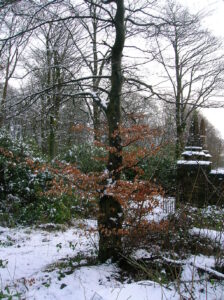 This word has a great deal of relevance when we discuss Open AI’s ChatGPT software. That program elicits responses that range from unreasoned panic to pedagogical curiosity among colleagues locally and globally.
This word has a great deal of relevance when we discuss Open AI’s ChatGPT software. That program elicits responses that range from unreasoned panic to pedagogical curiosity among colleagues locally and globally.
We fear, in short, that a machine will replace us.
Yet the AI has no volition. The OED entry defines our word as “An act of willing or resolving; a decision or choice made after due consideration or deliberation; a resolution or determination.” It comes from Latin volo, “I wish” or “I will.”
I decided to ask the AI about this. It replied “No, I am a machine learning model and do not possess volition or consciousness. I can only respond based on the patterns and information in my training data.”
If Strong AI ever develops, it will be able to ask us questions by itself, taking our answers to improve its own code. No developers needed to tweak its 1s and 0s.
Let that give you some comfort, as you are readers endowed with volition, curiosity, and the ability to change the contents of your mind by applying those two marvels. Consider this question put to the AI:
The Rolling Stones is a legendary British rock band that formed in 1962. They are considered one of the most influential bands in the history of rock music, and have produced many iconic songs such as “Satisfaction,” “Brown Sugar,” “Start Me Up,” and “Jumpin’ Jack Flash.”
On the other hand, I’m not aware of any specific references to “Lumpels” as a band, so I can’t make a comparison. Based on this context, I can say that The Rolling Stones is a more well-known and influential band compared to “Lumpels”.
Nominate a word students need to learn by e-mailing me (jessid -at- richmond -dot- edu) or leaving a comment below.
See all of our Metaphors of the Month here and Words of the Week here.
Image of Cylon Centurions courtesy of Dr. Gaius Baltar.

